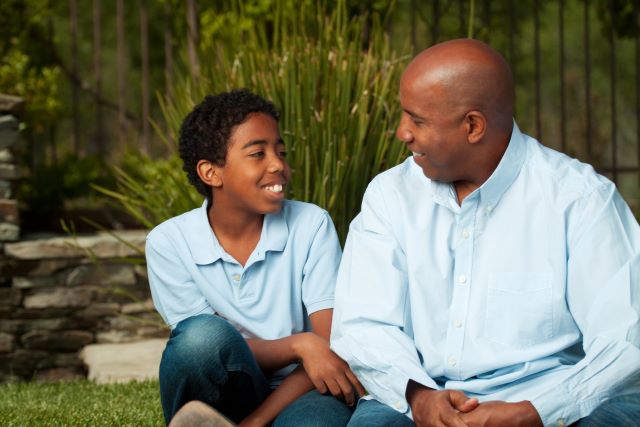Effective communication with your kids can transform your parenting relationship and create a positive environment for growth.
According to experts, using specific phrases can help foster understanding, strengthen your connection, and encourage healthy dialogue with your children.

“I need to think about that.”
Parents don’t need to have an answer or respond right away. It is okay to listen to your children and let them know that you need time formulate a proper response to what is going on. Not everything in life has a sense of urgency attached to it.
“Many of us believe we have to think on our feet, come up with an answer immediately, and reach consensus with a 4-year-old,” Dr. Wendy Mogel, PhD, author of “The Blessing of a Skinned Knee”, said in a recent interview with Parents.com.
“Instead of blurting out the first thing that comes to your mind, say ‘I need to think about that.’ By doing so, it gives you authority, buys you time, and also introduces the idea that people think before they speak.”
“How does that make you feel?”
Many parents, by not realizing it, actually provide their children with the emotions that they may or not be feeling regarding a certain situation or something. By asking your children ‘how does that make you feel’ they are in the drivers seat of their emotions and they can first work out what is going on in their mind and then they are better equip to communicate with you and others.

“Wow”
According to Dr. Mogel, saying “Wow” works well when your kid presents you with a problem or if they’ve done something they know will get them in trouble. There’s a two-prong benefit to using “Wow”: it lets your children know that that you’re acknowledging what has happened, but are not responding immediately, and it also provides you with a moment to figure out how to best guide them in resolving the situation.
“I especially like this one because it counters our whole culture of giving instant, urgent responses,” Dr. Mogel explained.
“Let’s see if we can find something good in this.”
From time to time, everyone has a Terrible, Horrible, No Good, Very Bad Day. However, if we are also all honest, even if it was an awful day, there is one little thing that was good about it. There was one silver lining, so to speak.
If your child is having a bad day, let them first express why the day is so bad and then say to them, “let’s see if we can find something good in this.” Nine times out of ten, you can and it won’t end up being a Terrible, Horrible, No Good, Very Bad Day after all.

“Listen to your body.”
Helping your child “listen to their body” and self-regulate allows them to grow into adulthood knowing how to be solely responsible for maintaining their physical health.
“If you habitually manage your child’s physical needs, they’ll figure out that they don’t have to and won’t learn to self-regulate,” Dr. Mogel explained. “Eventually, they will learn to pay attention to their body, they may even be able to recognize that the butterflies in their tummy are different from hunger pains.”
“Take a breath.”
We are all aware of this one, simply stopping and “taking a breath” seems to us all a time-out and moment to refocus before we jump back into the hectic deep end of our daily lives. Parents need this reminder just as much as kids do.
“Saying “Take a breath” puts an end to the urgency that so many kids feel during those transitional moments between activities, and it reminds you to take a breath too.”

Improving communications with children is a life-long journey and doesn’t happen overnight. But, by adding some of these suggestions in your parenting toolbox, communication will indeed get a little easier. They key is to find out what works in your family for your children and make those tools grow and blossom.







